
WESTWOOD—Nearly three dozen parents, grandparents, educators, and past and current officials from the Pascack and Northern Valley areas gathered at the Westwood Community Center on Jan. 9 to hear from Bergen County’s new superintendent of schools, Patrick Fletcher—and to support the League of Women Voters of Northern Valley as it strengthens its presence and impact.
Fletcher, a 40-year veteran of the education system, became the county superintendent last year after nearly 20 years leading the River Dell school district. Before that, he was the business administrator and superintendent in the Glen Rock school district for 14 years, and was the president of the Bergen County Association of School Administrators.
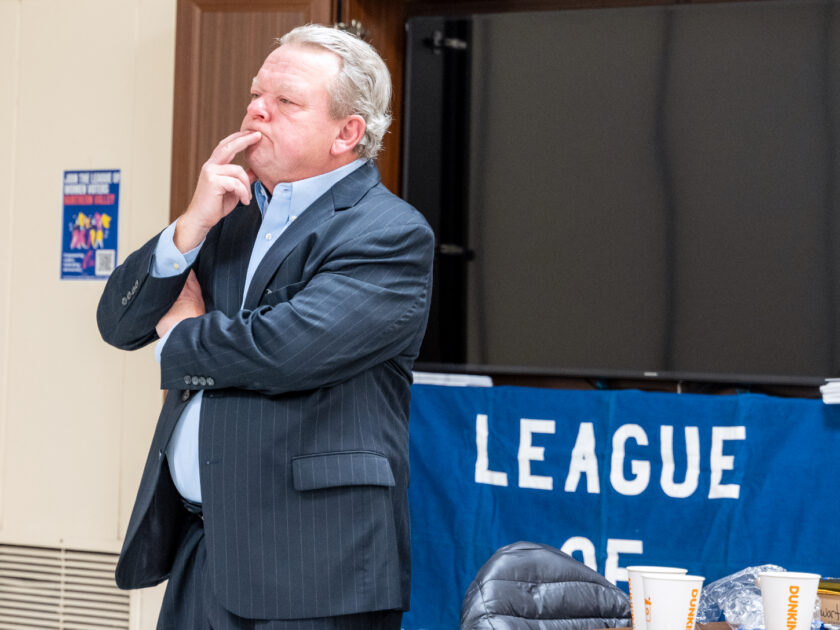
In a personable and wide-ranging talk hosted by the League of Women Voters of Northern Valley, Fletcher shared his priorities and offered insights into the state of education in the county.
Despite his “boyish good looks,” as he joked, Fletcher brings deep experience navigating the complexities of New Jersey’s public education system.
As county superintendent, based in Hackensack, Fletcher oversees 76 public school districts, three public charter schools, and one non-operating district in Bergen County. His responsibilities include ensuring districts comply with state education laws and regulations, but Fletcher emphasized his role as a resource for districts seeking guidance.
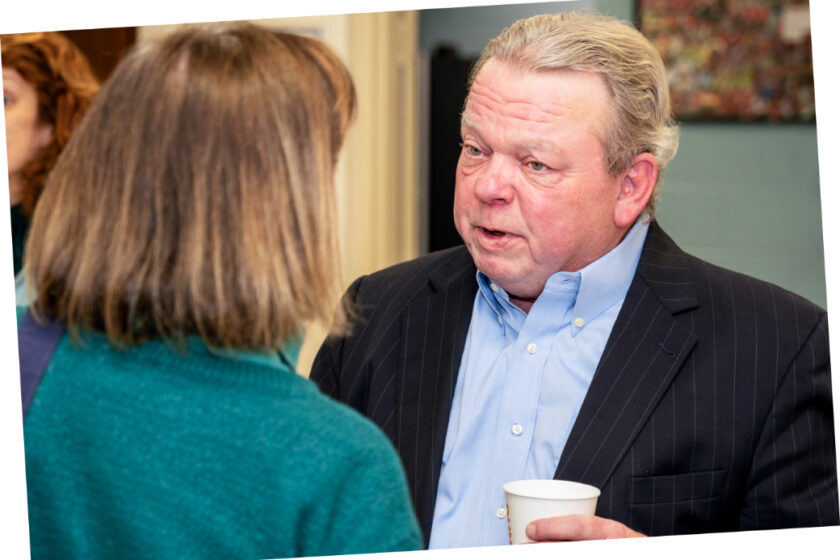
“If a school district calls the state or calls my office, they have a problem, and they need help or support right now,” Fletcher said. “They don’t need us to call the state [education] department and then wait five days for an answer.”
One focus of Fletcher’s remarks was the new civics education curriculum requirement in New Jersey, known as the Laura Wooten Civic Square law. The law, signed by Gov. Phil Murphy in 2021, honors Wooten, the longest continuously serving poll worker in American history, who passed in 2019 at age 98. It mandates at least one middle school course on civics or U.S. government as part of the social studies credit requirement for graduation. The curriculum aims to teach the values and principles of constitutional democracy, the function and limitations of government, and the role of citizenship in a democratic society.
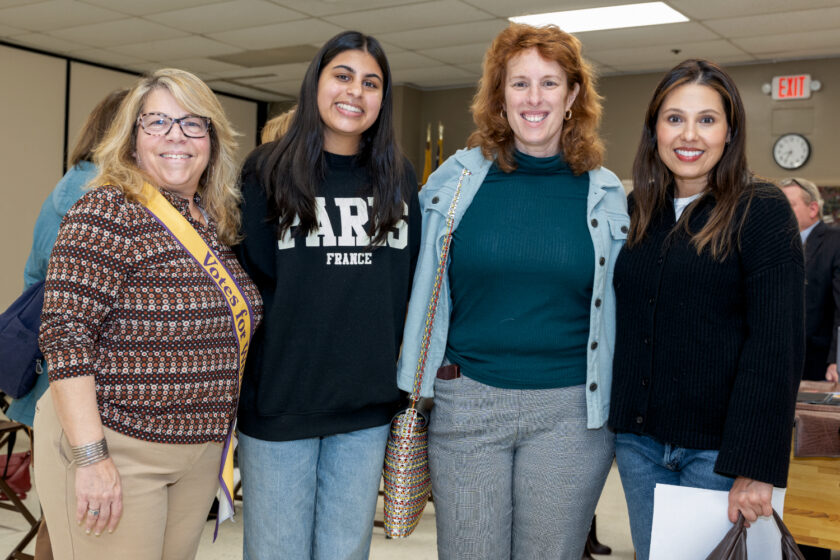
Fletcher praised districts such as Emerson and Little Ferry for their innovative approaches to implementing the civics curriculum. He highlighted the importance of teaching students not just the mechanics of voting but also the significance of informed and engaged citizenship.
“Civics is the act of being a citizen. And being a citizen is not easy,” Fletcher said, referencing the 1995 film “The American President,” which inspired television’s “The West Wing.” “It requires you to become informed, and it requires you to become informed accurately.”
In a lively conversation with the audience, Fletcher addressed key points, including:
- On civics filling in gaps in public understanding of the electoral process: “We [tend to] think everybody’s elected by popular vote. That’s not the case. And it also tries to help you understand that we’re not just a democracy; we’re a republic.”
- On his vision for civil discourse: “I should be able to talk to you even if I vehemently disagree with what you’re saying and what you believe. I should be able to speak to you in a civil way, and you should be able to speak to me in a civil way.”
Additional Challenges Ahead
Beyond civics education, Fletcher acknowledged the financial challenges facing Bergen County school districts. He cautioned that reliance on COVID-19 relief funds is unsustainable, noting the risks of districts encountering a “fiscal cliff” as they integrate temporary funds into ongoing budgets. (He said he didn’t buy into the fiscal cliff rhetoric, but said he was concerned.)
“The system, the way it’s funded, is not sustainable, in my opinion,” Fletcher said. “You just can’t keep going and asking people for money.”
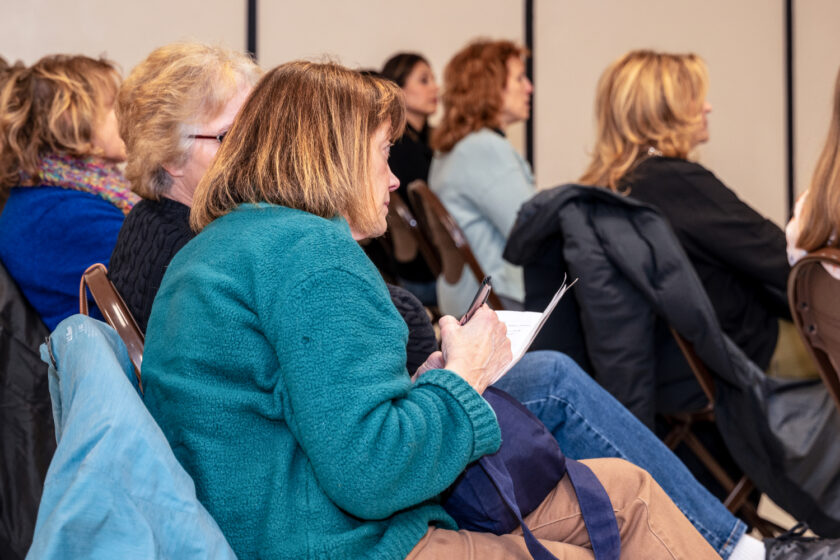
He explained, “If I use that money to hire counselors or teachers or whatever, that has to come into the regular budget for you to go forward, and people use this term fiscal cliff. I don’t mean it. I don’t think it’s that severe, but I think there’s going to be a lot of districts that use some of that money in an operational way, and now they have to figure out how to do and that’s going to be a big issue for districts around around New Jersey and right here in Bergen County.”
Fletcher also addressed teacher shortages, emphasizing the need for creative solutions such as remote teaching and continuing-education initiatives.
League Presses Its Mission
The League of Women Voters (LWV), a nonpartisan, grassroots nonprofit, is “dedicated to empowering everyone to fully participate in our democracy.” Active in all 50 states with more than 700 chapters nationwide, the League works to protect every American’s freedom to vote through advocacy, education, and litigation.
Founded in 1920, the League originated as a merger of the National Council of Women Voters and the National American Women’s Suffrage Association. Its mission has since broadened to include voter access, fighting voter suppression, and promoting social and economic justice.
The League of Women Voters of Northern Valley, which hosted the event, is a local chapter deeply involved in supporting civics education. This includes a partnership with the Harvard Civics Education Project.
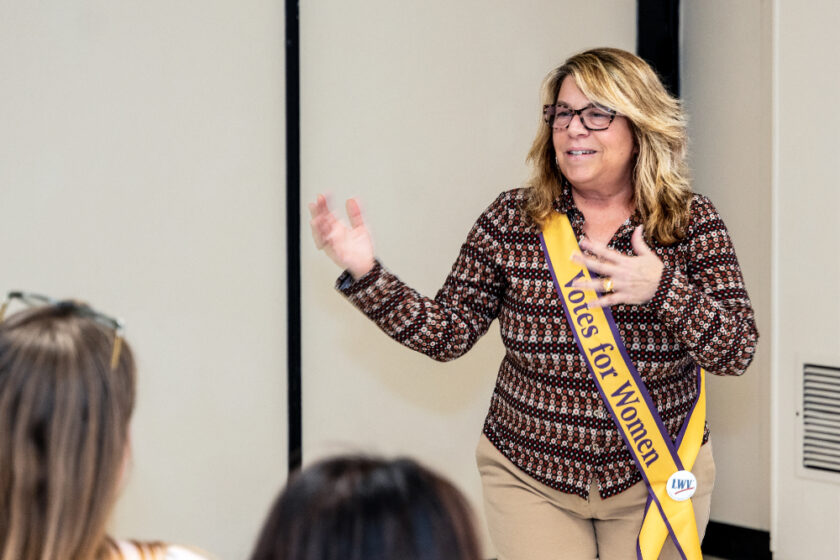
Local League president Tomasina Schwarz, who introduced Fletcher, reflected on her new role (she replaces Nike Bach) and outlined the group’s upcoming initiatives.
“I’m very happy to be the newly elected president. I’m still finding my way. I’m stepping into big shoes. So I thought we would start the year off with a bang: Mr. Fletcher.”
She noted that the League’s upcoming events include hosting a state Supreme Court justice in February and a women’s history event in March. She emphasized the League’s commitment to educating the public and forming partnerships with local organizations like the Center for Food Action.
The event’s audience included one young student, Serene of Tenafly, who attended with her mother, Wardah, a new member of the League and herself a recently appointed League intern. They graded the event an “A.”
The organization includes several surrounding towns and meets at local libraries on the second Thursday of the month at 7 p.m. There is a membership fee; high school internships are available.
For more information, visit the LWVNV’s website or Facebook.
